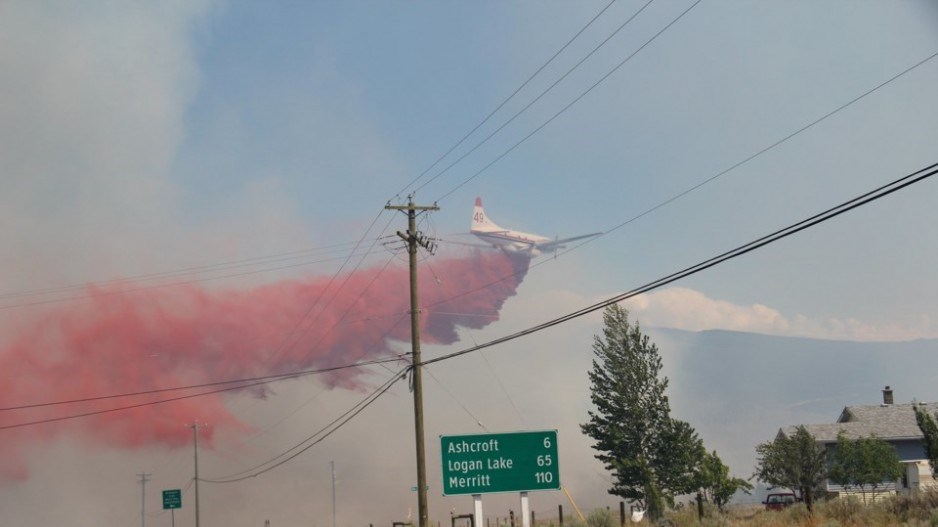Temperatures across the province are expected to heat up as July continues, with the BC Wildfire Service (BCWS) anticipating increased fire behaviour toward the end of the month.
Matt MacDonald, BCWS’s lead forecaster, presented a seasonal wildfire outlook on Thursday afternoon alongside Katrine Conroy, B.C.’s minister of forests.
MacDonald said a cooler June — bringing deep and consistent rain to most of B.C. — contributed to a quiet start to this year’s fire season for much of the province, but fuels can still dry out and become receptive to ignition even after a week of warmer weather.
From April 1 to July 4, there have been 217 wildfire starts — about half the number of wildfires usually recorded by this time of year — and fires have been smaller than normal, as well.
“The likelihood of getting big, large, deep burning fires is relatively low right now. But again, it does not preclude us from seeing increased fire activity as we get into the middle, the heart of summer,” MacDonald said.
“With the forecast that I presented today, there is good chances of getting into that warm weather. So inevitably, we will likely see an increase in fire activity.”
MacDonald said a return to hot and dry conditions is expected over the next few weeks.
“As we get into the latter half of July, not only will we see these summer-like temperatures finally materialize, but they will likely be warmer than normal, likely by the tune of a degree or two, which over a 30-day period is definitely noteworthy,” MacDonald said.
MacDonald said forecasts are predicting drier than normal conditions through the latter half of July and into the beginning of August, but he noted precipitation amounts are difficult to forecast.
He said much of the rainfall that happens in the summer months comes from small-scale thunderstorms which are “impossible” to forecast beyond a two or three day period.
“We'll have to see how that situation plays out. But we're rather confident that we will be getting into warmer conditions here as we get into the heart of summer,” MacDonald said.
He said it’s likely this pattern will continue through August, with a predicted return to near-seasonal temperatures at the end of August and into September.
MacDonald said BCWS’ focus is currently on the northwestern corner of the province, which wasn’t hit by as much precipitation as the rest of B.C. and is seeing “quite an active start to the fire season.”
He said BCWS anticipates initial attack success for teams responding to fires over the southern two thirds of the province. For the northern regions, he said it will depend on incoming lightning forecast over the next few days.
"There are increasing chances as we get into early next week that we'll finally get some rain into that northwest corner,” MacDonald said.
Conroy said the slow start to the fire season has allowed BCWS to sent 113 personnel to support firefighting efforts in the Yukon.
“Last year, during one of our worst and most challenging fire seasons, we gratefully received support from 917 out-of-province personnel, including resources from the Yukon. So supporting each other in times of need is really important and something that B.C. is proud to be able to do,” Conroy said.
On Thursday, Conroy announced the government would be making an additional $25 million available for community projects to help reduce the risk of wildfires, available through the Forest Enhancement Society of B.C. — an agency that helps communities reduce wildfire risk and greenhouse gas emissions.
“Communities deserve all of our support, especially as the threat of wildfires appears to be increasing with the ongoing effects of climate change,” Conroy said, adding she is hoping for a better wildfire season this summer.
“As every British Columbian knows, we're regularly facing some of the toughest welfare conditions we've ever seen in this province. And that's why the funding to FESBC is just one part of our recent budget to protect British Columbians from wildfires.”




